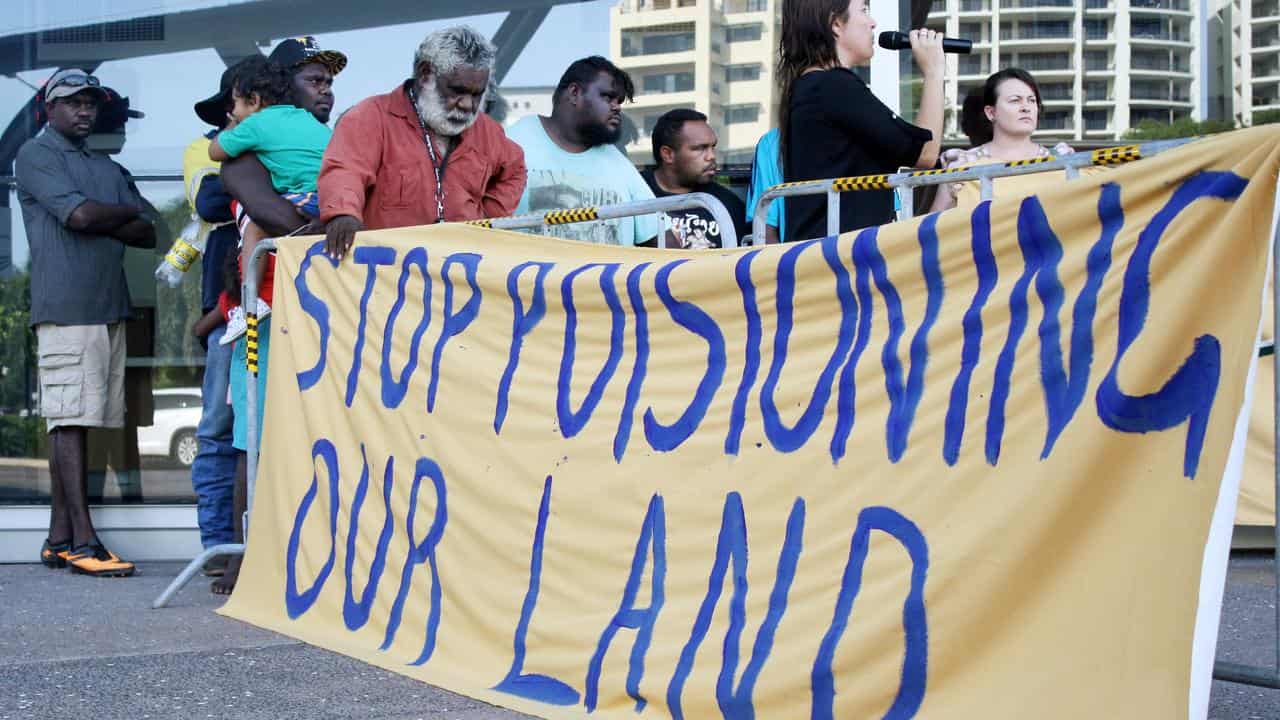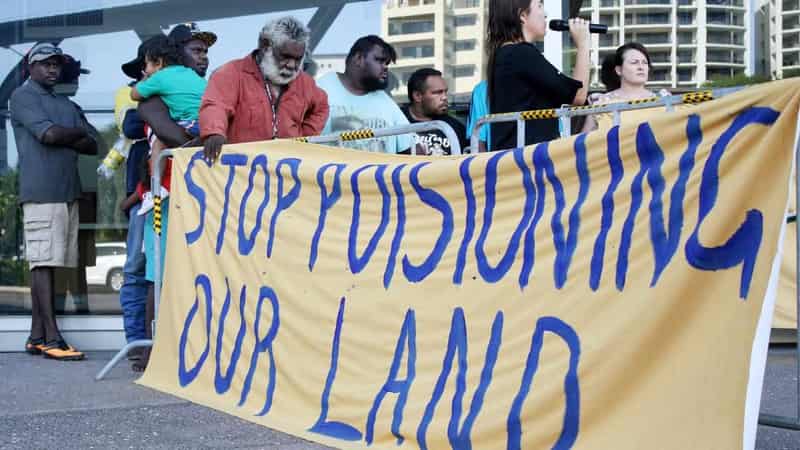
A United Nations investigator has unleashed on Australia for failing to protect its people and environment from climate change, mining, pesticides and other toxic threats.
Australia will have to answer next year to an extraordinary list of failures detailed by Marcos Orellana, the UN's Special Rapporteur on toxic substances and human rights, following a national tour.
They include a refusal to end the exploitation of new fossil fuel projects that threaten to turn the Darwin region into "a climate change sacrifice zone".
He specifically called out the Middle Arm industrial hub and the $1.5 billion in government support it's receiving, fracking for gas in the Beetaloo basin, and the Barossa offshore gas extraction project.
"It is not just a matter for Australia's to reduce its combustion of fossil fuels to reduce its greenhouse gas emissions in its territory," the special investigator said in preliminary observations presented on Friday.
"But that it also should put an end to the exploration or exploitation of new fossil fuel developments that will lead to combustion of fossil fuels and aggravate climate change in the planet."
After 12 days travelling the country visiting contaminated sites and hearing from communities, Dr Orellana suggested Australians did not feel heard or protected from harms inflicted upon them, often for commercial gain.
He said there is a "deep disconnect or distance between the government and community narratives concerning toxics".
"Communities and civil society denounce the capture of the state for the benefit of mining, oil, gas, agrochemical and other corporate interests."
Dr Orellana said Australia's environmental protection framework was largely reactive, and "beneath international best practices" but that could change if the country enshrined in law the right to a healthy environment.
He said air quality was not protected to the same standard as other OECD nations, and places like Victoria's La Trobe Valley for many years lacked adequate pollution controls from coal-fired power plants.
The nation had a history of failure in rehabilitating mines, including uranium mines, Dr Orellana said, and required mining companies to put up reparation bonds entirely insufficient to repair the landscape.
He railed against Australia's widespread use of hazardous pesticides with little to no information disclosed to the public and a lack of monitoring for health effects.
Indigenous Australians most keenly felt the disconnect with government on matters of toxic impacts, he said, with big lessons to be learned after traditional owners recently won a court challenge to stop a nuclear waste dump being built on their land in South Australia.
Racism was a factor and needed to be resolved, according to Dr Orellana.
He said that while Australia’s National Radioactive Waste Management Act does not override federal laws to protect cultural heritage, it "contains racist elements that override cultural heritage protections established by the states".
Dr Orellana said uranium mining posed toxic challenges to Indigenous and local communities, and while noting promising developments at the Ranger Mine in the Northern Territory, there had been a persistent pattern of failure to rehabilitate.
The investigator was invited by Australia to make an official visit, and the preliminary observations will form the basis of a full report to the UN Human Rights Council in September next year, when Australia will have a chance to respond.
Dr Orellana's other concerns included "draconian" restrictions on the right to protest in some Australian jurisdictions, environmental exemptions granted to industry, and weak penalties for companies that breach the licences.
"They are simply absorbed as a cost of doing business, while the toxic harm is imposed on workers or neighbouring communities," he said.
There were some words of praise for Australia including its support for a new international treaty on plastic pollution, and its efforts to move to a circular economy.
AAP is seeking a response from the federal government.









